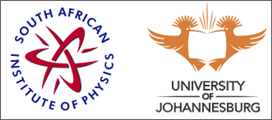Speaker
Level for award<br> (Hons, MSc, <br> PhD)?
N/A
Apply to be<br> considered for a student <br> award (Yes / No)?
No
Would you like to <br> submit a short paper <br> for the Conference <br> Proceedings (Yes / No)?
Yes
Abstract content <br> (Max 300 words)<br><a href="http://events.saip.org.za/getFile.py/access?resId=0&materialId=0&confId=34" target="_blank">Formatting &<br>Special chars</a>
Quantum mechanics is one of the most successful theories every produced, making highly accurate predictions in fundamental science and underpinning of many of today’s technologies. However, although highly accurate as a predictive tool, some aspects of quantum mechanics are not without their opponents. The fact that light has both particle-like and wave-like properties seems odd, but all scientist and philosophisers agree these are simply convenient models used to describe the way that light behaves. The concerns over quantum mechanics and its implications lie much deeper, relating to the role played by probability and chance. Niels Bohr championed a form of quantum mechanics where random chance meant that, even if perfectly repeated, the same experiment could give different outcomes. Albert Einstein’s concerns with the potential role of random chance in the universe were summarised in the quote that “God does not play dice with nature”. As a resolution to this debate, this lecture will endeavour to explain to the non-specialist how experiments performed over the last 30 years by the likes of Alain Aspect and Anton Zeilinger have shown that random chance is indeed central to the way our universe works.

